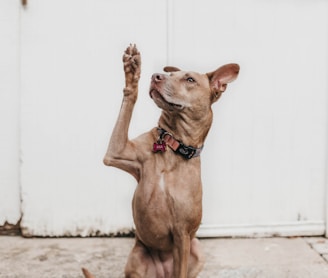10 natural ways to help your dog diagnosed with Bladder Cancer


What is Transitional Cell Carcinoma?
Transitional Cell Carcinoma (TCC) is a malignant cancer of the cells lining the inside of the urinary bladder. Symptoms can mimic bladder infections – bloody urine, straining to urinate, frequent urination, painful urination, incontinence and accidents in the house. It typically occurs in older dogs. It is more common in female dogs, neutered dogs, and overweight dogs.
What causes Transitional Cell Carcinoma?
TCC may have a hereditary component because certain dog breeds seem to have a predisposition to bladder cancer. These breeds include Westies, Scotties, American Eskimos, Schipperkes, Fox Terriers, Beagles, Shelties, Keeshonds, Samoyeds, Dalmations, Airedales, Collies, and Chesapeake Bay Retrievers. A mutation in the BRAF gene has been linked to bladder cancer. Exposure to chemicals such as herbicides, pesticides and insecticides like Pyrethrins has been linked to bladder cancer. Studies have shown a significant increase in the development of TCC in Scotties exposed to lawn chemicals. Bladder cancer is also a side effect of cyclophosphamide chemotherapy and previous radiation of the bladder.
A different spin on Transitional Cell Carcinoma.
In TCM, bladder cancer translates to Blood Stasis and Damp-Heat with Qi and Yin deficiency. Qi deficiency is a consistent underlying pattern in pets with cancer. Qi deficiency is caused by poor diet, over work, chronic stress, and toxins such as pesticides and drugs. Chronic Qi deficiency results in the production of unusable Dampness in the body. Dampness mucks up the system and slows Qi and Blood, causing friction and generating Heat. This creates an environment where cancer can develop.
How is Transitional Cell Carcinoma Treated?
Conventional veterinary medicine utilizes surgery, chemotherapy, radiation therapy and non-steroidal anti-inflammatories, such as Piroxicam, to treat TCC. Many bladder tumors are not surgically removable due to their precarious location near delicate structures.
How can holistic care help a dog diagnosed with Transitional Cell Carcinoma?
Reducing environmental and lifestyle risks such as obesity and exposure to household chemicals, insecticides and herbicides will help prevent bladder cancer. Interestingly, a research study in Scotties showed that their risk of bladder cancer was reduced when leafy greens and yellow/orange vegetables were added to their diet at least three times a week. This conventional research study supports what holistic medicine has known for a long time – that a fresh food diet can help prevent cancer and induce cancer remission. A serendipitous finding in a cancer research study by Dr. Erin Bannink, revealed that dogs with cancer that were fed fresh food diets faired significantly better than dogs fed heat processed diets (kibble and canned). Herbs, supplements and fresh food diets can help pets feel better and achieve cancer remission. Holistic care can prolong a pet’s life and maintain or improve their comfort and quality of life. Research has shown that certain herbs and herbal formulas can induce cancer cell death, prevent metastasis, stimulate the immune system, decrease chemotherapy and radiation side effects, and improve chemotherapy results.
10 natural ways to help a dog diagnosed with Transitional Cell Carcinoma.
Feed a balanced, fresh, real food diet.
Give Yunnan Baiyao especially if the urine is bloody.
Add anti-cancer herbs such as Boswellia, Astragalus, Garlic, and Turmeric.
Give Medicinal Mushrooms such as Turkey Tail, Cordyceps or Reishi.
Supplement Omega 3 Fatty Acids.
Supplement Vitamin C and Vitamin D3.
Give Green Tea Extract (EGCG).
Supplement IP-6.
Choose herbal formulas such as Si Miao San, Shao Fu Zhu Yu Tang or Xiao Chai Hu Tang with the help of a veterinary herbalist or holistic veterinarian.
Seek out acupuncture by a certified veterinary acupuncturist.
Looking for a personalized assessment and recommendations for your pet? Click here to schedule a virtual consultation today.
